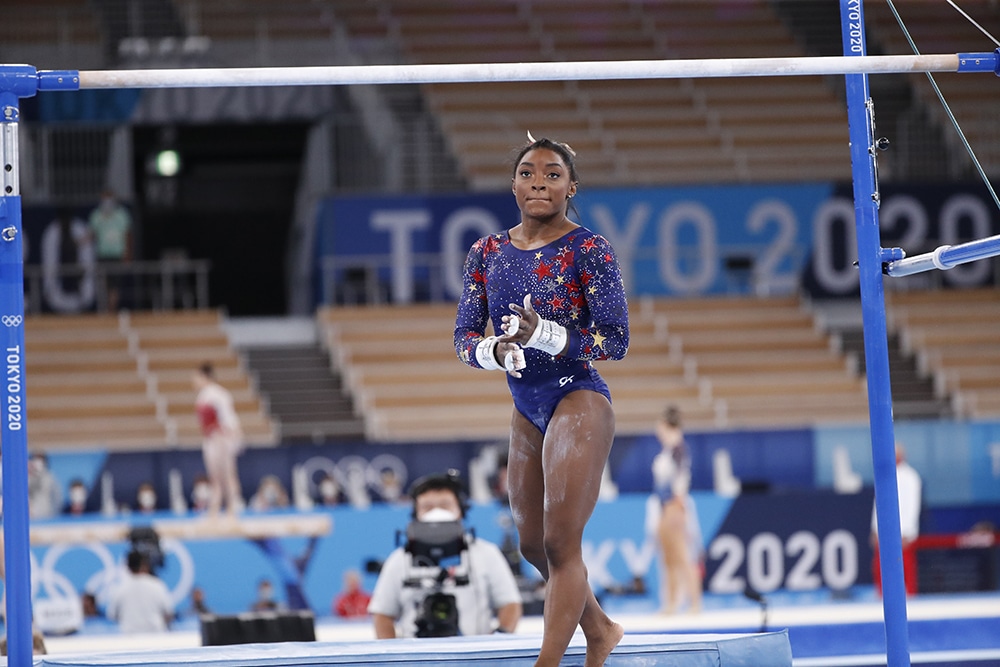On Tuesday, Simone Biles withdrew from the women’s gymnastics team finals at the Olympics in Tokyo citing mental health concerns. Tuesday was also my oldest son Anthony’s birthday. He died by suicide in 2017. Needless to say, the issue of mental health was heavy on my mind and heart.
Not dealing with our own mental health issues can have lasting effects — not just on us, but on generations after us. The impact of trauma gets passed down until it is healed, but healing requires someone who is willing to make their mental health a priority — someone like Simone Biles.
But the stigma that comes with fighting for your mental health is real. The stigma comes when someone says, “I cannot do this; my mental health is not well,” and the response is that they are weak or that they lack grit. Respecting the dignity of a person made in the image of God means understanding that their life is way more important than a gold medal.
If we cannot see how someone withdrawing from a gymnastics competition due to mental health concerns is a courageous and brave thing to do, then how are we ever going to notice when our own mental health is not well so that we can take a break and get help? We aren’t. Instead, we are going to “push through” — that is, until we can’t push through anymore. Denying that we are struggling with our mental health also denies us a real relationship with God. We hide our thoughts and feelings from him because we are ashamed of being weak.
And why wouldn’t we believe that? Until this week, no one had ever called Simone Biles weak — she’s one of the greatest athletes of all time — but after acknowledging that the pressure to win was too great and that she could not compete safely given her mental state, we read comments calling her a quitter, saying she lacks courage and that she caused her team to lose the Gold. Hearing such terrible things, we internalize them and ask: What will people say about me if I admit that I’m struggling badly with my own mental health? Will they say that I’m a quitter, or that I’m weak?
Looking around at the state of the world, it’s obvious that there is a severe lack of attention being paid to mental health. People are dying by suicide at alarming rates, addicted to drugs or alcohol — not to mention numbing whatever pain that has been caused by wounds they are too ashamed to talk about. Why? Because when someone like Simone Biles says “I can’t do this, my mental health is not well” they get comments about how weak they are. “Buck up” is a common phrase I heard growing up. So did Anthony. It is meant to be encouraging, but perhaps hearing that just tells someone that they cannot talk about their pain? And if they can’t talk about that pain with other people, then why would they think they can take it to God?
It is through therapy that I have found God’s healing in my life. In going to a therapist to work on my mental health issues, I have come into a greater relationship with God. I am no longer ashamed to come to him as my full self. I do not hide parts of me.
I am proud of Simone Biles. What she did was courageous, and it just might save someone else’s life — someone who saw that she was strong enough and wise enough (and that she was brave enough to do it on the world’s biggest stage) to take care of herself. I hope this is a message to us as Catholics that now is the time to think about mental health differently, and that by doing so, we are not weak or selfish, but we will have the ability to be better neighbors, friends and family members — and, most importantly, better disciples of Jesus Christ, the Divine Healer.
Leticia Adams writes from Texas.





